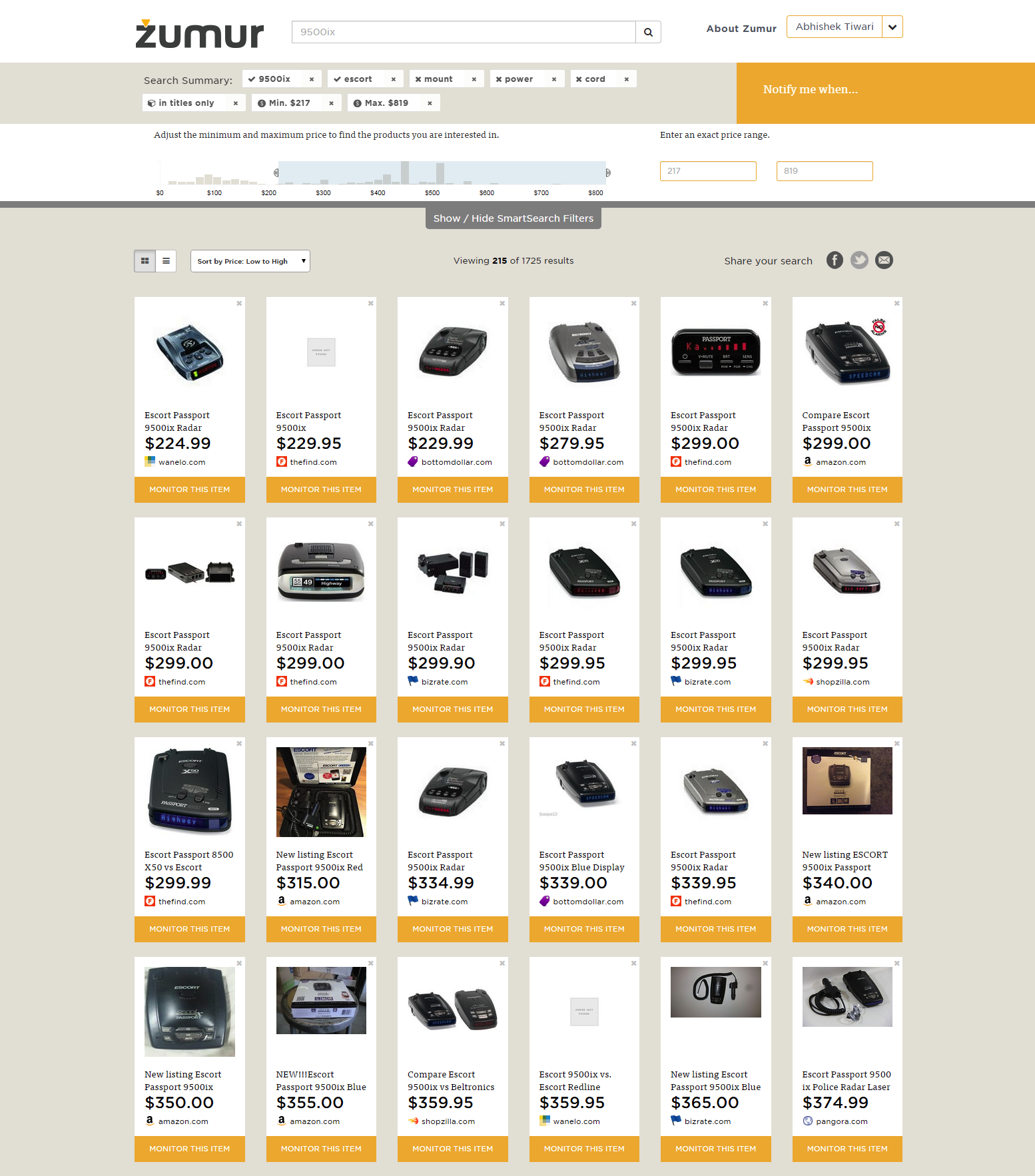Want smarter insights in your inbox? Sign up for our weekly newsletters to get only what matters to enterprise AI, data, and security leaders. Subscribe Now
Startup Zumur has its positioning metaphor down.
It wants to be “the Kayak of product comparison search engines,” CEO and founder Abhishek Tiwari told VentureBeat. The company is announcing today that it has raised the first half of what it expects will be a $1.4 million seed round.
“The problem to be solved,” he said, “is that the current consumer [product search] landscape is an in-network play.”
Product searches on Google, Yahoo, NextTag, Shopzilla, and other engines, Tiwari said, are like HMOs because they only point to product choices from vendors in their network, with referral fees from users’ purchases.
If you’re a Target chain, this is fine, because you have the budget and the staff to make sure you’re in all the product search engines. But if you’re a retailer with “one IT guy,” he said, and you can only get into a few, you’re losing out — and, potentially, so is the consumer.
Instead, the free Zumur takes a consumer’s product search and issues it to most of the product search engines. It also includes peer-to-peer marketplaces, such as eBay Classifieds or Craigslist, as well as auction sites and shopping services like Groupon and LivingSocial. Consumers click through to buy, as they would normally.
Hence, the parallel to Kayak, which similarly searches other travel search sites. But that and similar sites like Hipmunk get commissions from airlines and hotels.
“Originally,” Tiwari noted, some of the engines “pulled up all products [and not only from in-network vendors,] but they couldn’t monetize just with advertising.”
So how is Zumur going to make money?
Data, Coupons, Ads
At first, with anonymous data.
“What we’re going to do is provide a complete platform for consumer information,” Tiwari told us. By subscribing, manufacturers, retailers, and advertisers will be able to find out, for instance, the most popular price point for radar detectors or the most popular toys for the holiday season as of right now.
Such information might allow a retailer to clear out excess inventory by pricing it right or offering coupons.
At some point to be determined, he said, Zumur will add other functionality to its engine, so that a consumer can, for example, set the desired price point for a given product and receive a notice when that price is offered.
There will also be an option to see not just the prices for a product in the various engines but also any related reviews and coupons. Zumur will also be able to offer individualized coupons, Tiwari said, so that “you’ll get a different one than I will.” A fee on coupons will be the second revenue source.
A third source of revenue is targeted ads.
The seed round was led by Lewis Smoak, a founding partner of corporate law firm Ogletree, Deakins, Nash, Smoak & Stewart and chairman of Zumur’s board of directors. Tiwari said the money will be used to finalize development of the search engine and to build the user base in anticipation of the launch. Founded in 2012, Zumur is currently in an invite-only beta phase, and Tiwari said he expects the engine to have as many as 100,000 users by the holiday season, with a launch by the end of January.
The competitors to his uber-engine are “the in-network guys,” he told us. But even when a consumer makes a purchase through Zumur, Google and the others still make their referral fees. He also pointed to Padmapper, which he said “is doing something similar in the real estate space.”
“No one else is doing this in the consumer space,” he told us, but “there’s plenty of food at the table.”



